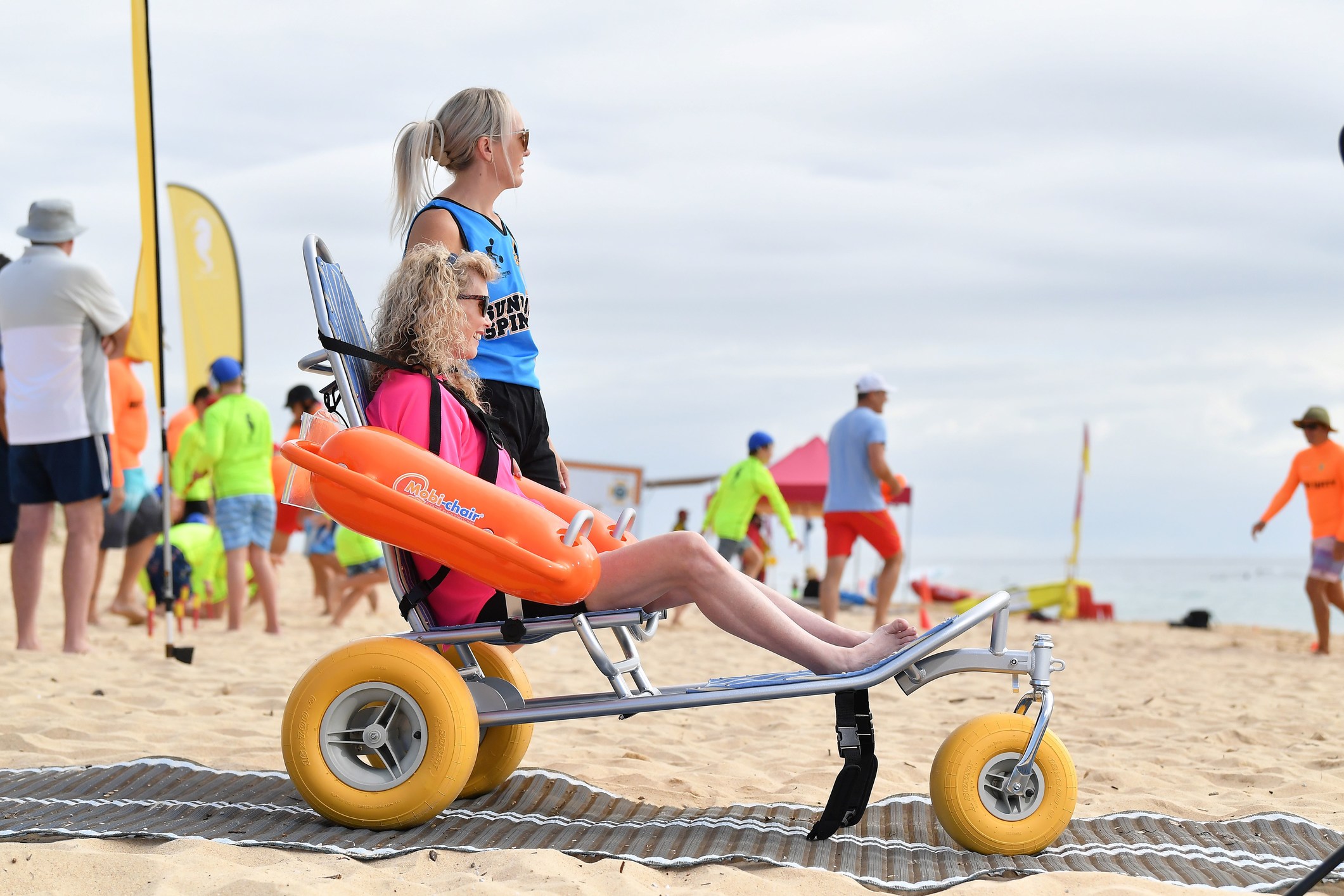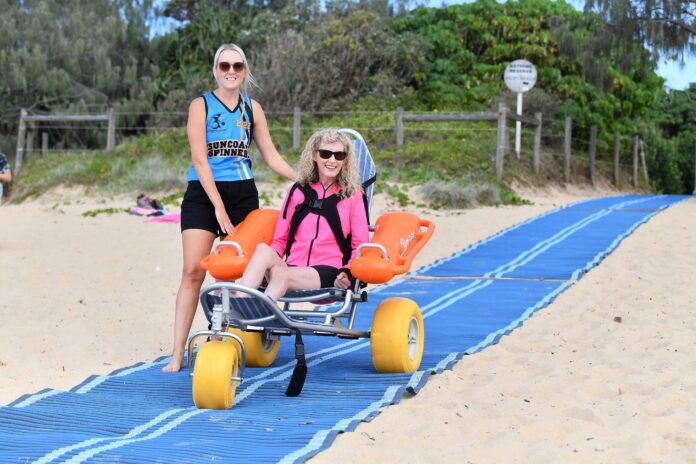People with special needs are savouring experiences at the beach and being “a part of Australian culture”, thanks to assistive technology.
Research by the University of the Sunshine Coast has confirmed the positive impact of equipment that has allowed people with disabilities to access and use the beach.
The study came just before Sunshine Coast Council rolled out beach matting and a wheelchair at another location, Dicky Beach (scroll down for more).While beach assistive technologies (BAT) such as beach wheelchairs and matting have been anecdotally well-received since their emergence, Dr Michele Verdonck said we’ve only scratched the surface in understanding the full scope of the impact.“This research confirms some of the things we assumed,” she said.
“Namely, that getting to the beach is valued and people with disabilities should be allowed to get onto the beach and participate in beach leisure just like everyone else does.“But it also connects people and affirms their identity.”Several BAT users reported that it allowed them to enjoy being “a part of Australian culture” again and has given them access to “a normal life”.Dr Verdonck said this was no small thing for a significant number of Australians with physical impairments or disabilities, who believed they would never touch the sand or feel waves again.“Many of the research participants were surprised by the fact that they could actually go to the beach. They did not realise it was possible,” she said.“This has an important link to councils and surf lifesaving clubs, because very often it is through these publicly available beach wheelchairs and mats that people first get to realise a new reality – and get onto the beach like everyone else.”
Sunshine Coast Council has run an Accessible Beach Program at Mooloolaba and Coolum surf lifesaving clubs for several years and was seeking new ways to improve the program, including looking at options to expand the program to more locations.Councillor David Law said it was vital everyone was able to enjoy our beaches.“We’re extremely proud to be able to promote inclusion, diversity and beach access for all on the Sunshine Coast,” he said.The study also brought to light some significant hurdles still facing those with physical impairments from using the beach, including the bulky and often difficult nature of the equipment, reliance on scheduled times for access and the continued need for assistance from others.Dr Verdonck believes the paper is the first qualitative study focused on BAT and said it was already having a positive impact in the professional space.“It’s already being circulated in occupational therapy and assistive technology fields and being used for supporting clinical decision making,” she said.“One of our recent graduates contacted me to say she had read it and was using it already – which doesn’t often happen that quickly in research.”

Beach matting, a wheelchair and life jackets will be available at Dicky Beach Surf Lifesaving Club for a three month trial from September, through Sunshine Coast Council’s Accessible Beach Program.
Division 2 Councillor Terry Landsberg said council was proud to provide a third location to the accessible beach program.
“With the warmer weather well and truly here on the Sunshine Coast, people with disability will be able to enjoy more of our wonderful beaches,” he said.
Dicky Beach Surf Lifesaving Club Secretary Sue Williams said the club was thrilled to be able to offer a safe, accessible and inclusive environment between the flags.
“Our new beach matting will minimise and eliminate barriers for so many people by improving ocean accessibility for people in wheelchairs, as well as parents with prams, people with vision impairment, on crutches, or with walkers,” she said.
Residents and visitors are asked to book the beach wheelchair at least 24 hours before they visit at this link. Equipment at Dicky Beach will be available from 8.30am to 3.30pm, weekends and public holidays.
Compass Institute Caloundra also has a beach wheelchair that can travel on sand without beach matting. It is available for hire for use at any patrolled Sunshine Coast beach. Book with Compass Institute from Monday to Friday between 9am and 3.30pm, phone 5438 2627.
Do you have an opinion to share? Submit a Letter to the Editor at Sunshine Coast News via news@sunshinecoastnews.com.au. You must include your name and suburb.





